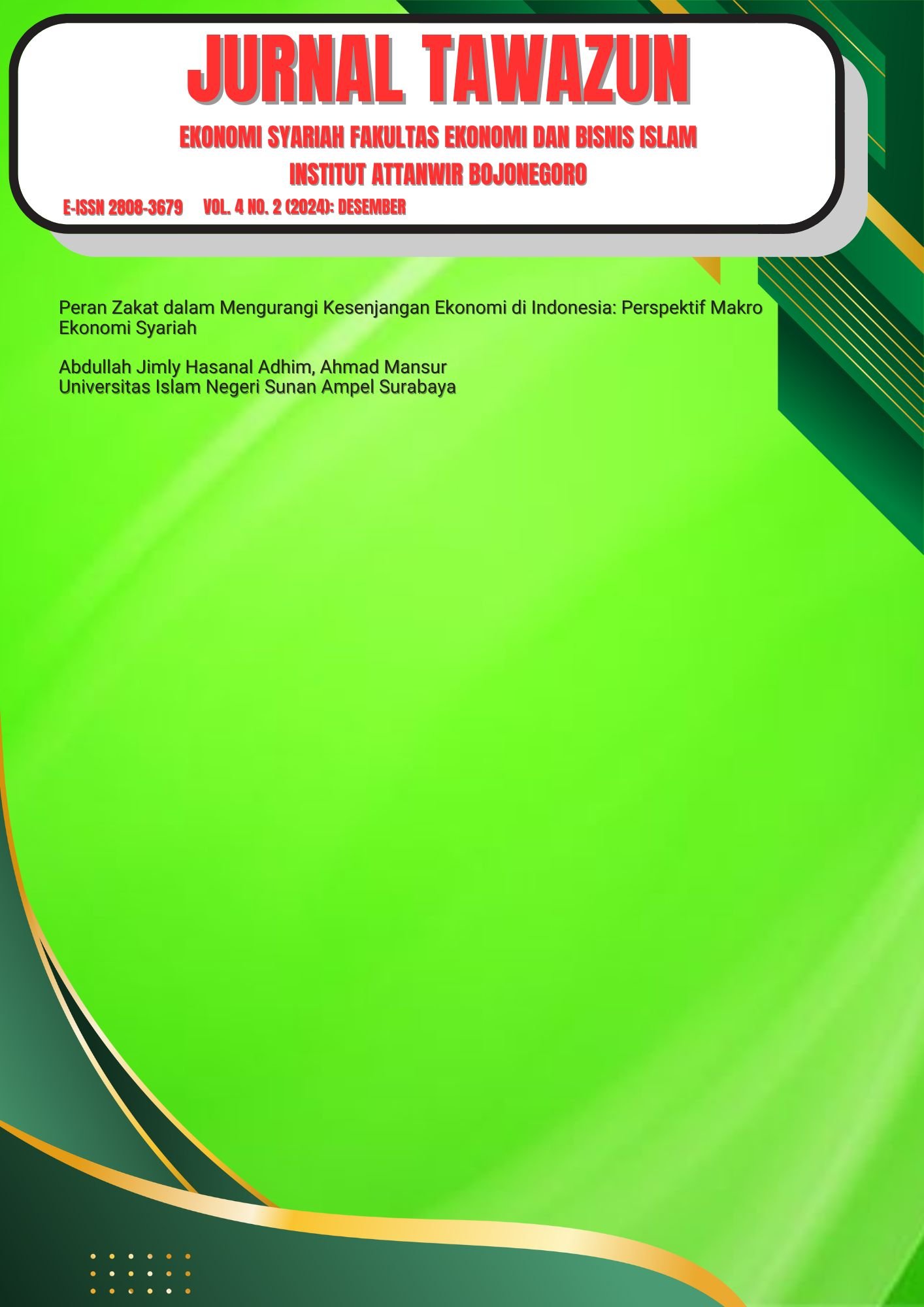Peran Zakat dalam Mengurangi Kesenjangan Ekonomi di Indonesia: Perspektif Makro Ekonomi Syariah
Keywords:
Zakat, Economic Inequality, Sharia Macroeconomics, Income Redistribution, Community EmpowermentAbstract
This research analyzes the role of zakat in reducing economic inequality in Indonesia through a sharia macroeconomic perspective. As an important instrument in the distribution of wealth, zakat has great potential to improve social welfare and create economic justice. This study uses a qualitative-descriptive approach with secondary data analysis methods from literature and reports of zakat institutions in Indonesia. The research results show that effective zakat management can encourage income redistribution, reduce poverty rates, and increase the empowerment of poor communities. From a sharia macroeconomic perspective, zakat not only functions as an obligation of worship, but also as an economic stabilization mechanism that can reduce economic inequality significantly. To achieve maximum potential, it is necessary to strengthen regulations, increase transparency, and synergize between zakat institutions and the government in economic empowerment programs.






